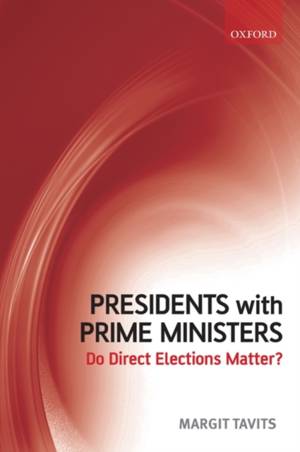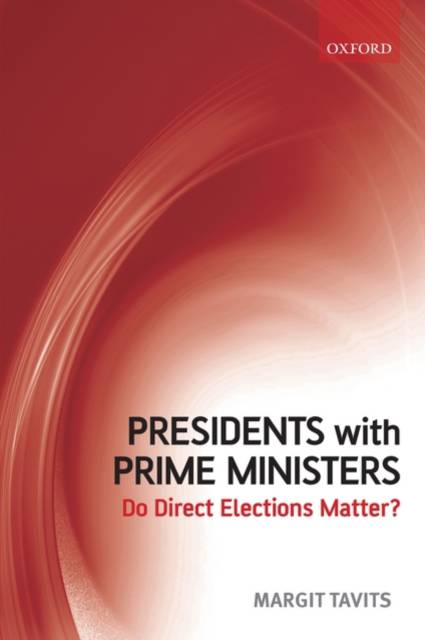
Je cadeautjes zeker op tijd in huis hebben voor de feestdagen? Kom langs in onze winkels en vind het perfecte geschenk!
- Afhalen na 1 uur in een winkel met voorraad
- Gratis thuislevering in België vanaf € 30
- Ruim aanbod met 7 miljoen producten
Je cadeautjes zeker op tijd in huis hebben voor de feestdagen? Kom langs in onze winkels en vind het perfecte geschenk!
- Afhalen na 1 uur in een winkel met voorraad
- Gratis thuislevering in België vanaf € 30
- Ruim aanbod met 7 miljoen producten
Zoeken
€ 257,95
+ 515 punten
Omschrijving
This book is about presidents in parliamentary systems. One commonly recurring political debate within parliamentary systems is over whether or not the public should directly elect the head of state. Despite the importance of this topic in practical politics, political scientists have offered little empirical evidence, yet made bold assumptions about the consequences of popular elections for heads of state. A common argument is that direct elections enhance presidents' legitimacy thereby increasing their activism and encouraging authoritarian tendencies. Another popular assumption is that direct presidential elections are more heavily contested and partisan, polarizing and dividing political elites and the electorate. Proponents of direct elections argue that such elections will help decrease voter alienation and apathy. This book challenges the conventional wisdom. Using both quantitative and qualitative empirical evidence from democratic systems across the world, this book demonstrates that compared to indirect selection methods, direct elections do not yield more active and contentious presidents, do not polarize political elites or society, and do not remedy political apathy. Rather, presidential activism in both "semi-presidential" and "pure parliamentary" systems is shaped by political opportunity framework--the institutional strength and partisan composition of both parliament and government. Further, because holding the presidency provides parties with an electoral asset, direct and indirect presidential elections can be equally contentious and polarizing. Last, but not least, rather than decreasing apathy, direct election is associated with increased voter fatigue and decreased turnout in parliamentary elections by about seven percentage points.
Specificaties
Betrokkenen
- Auteur(s):
- Uitgeverij:
Inhoud
- Aantal bladzijden:
- 284
- Taal:
- Engels
Eigenschappen
- Productcode (EAN):
- 9780199553327
- Verschijningsdatum:
- 15/01/2009
- Uitvoering:
- Hardcover
- Formaat:
- Genaaid
- Afmetingen:
- 155 mm x 236 mm
- Gewicht:
- 566 g

Alleen bij Standaard Boekhandel
+ 515 punten op je klantenkaart van Standaard Boekhandel
Beoordelingen
We publiceren alleen reviews die voldoen aan de voorwaarden voor reviews. Bekijk onze voorwaarden voor reviews.









